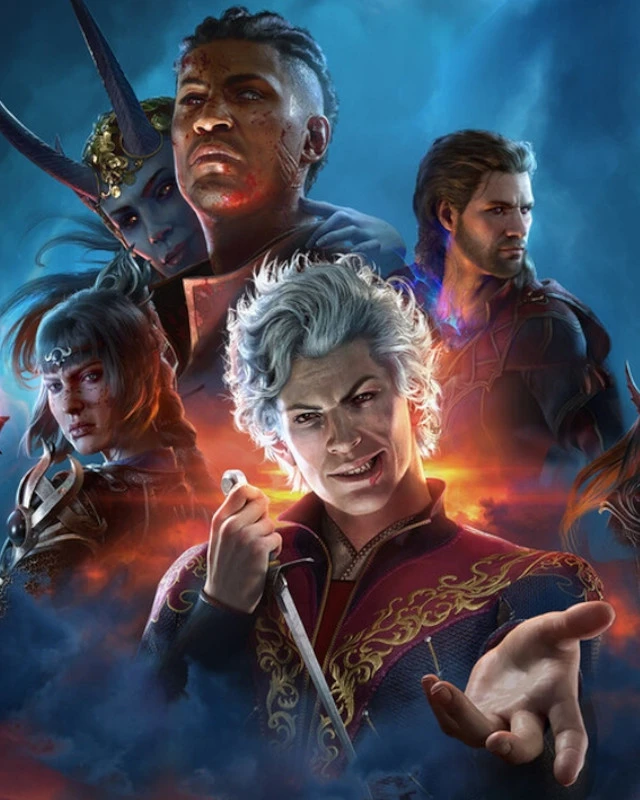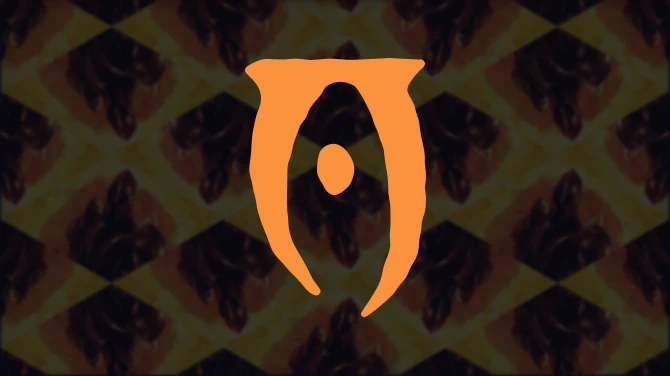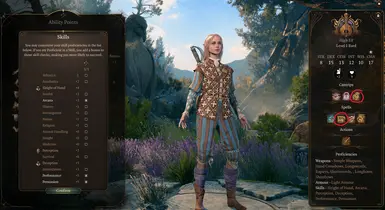About this mod
I do all your skill checks. All the spells you can't do without. A lullaby when you want to sleep. You'll never want anyone else.
- Requirements
- Permissions and credits
I'll give you a proper list of all the additions below, but if you're reading this, maybe you want to understand the rationale: why I felt that this was a necessary change and uploaded it for other people to use. So let's talk about that.
The Bard class has always been a bit of a thematic mess, with abilities that fluctuate wildly between editions: back in AD&D it simply cast Wizard spells, so the average Bard was singing Fireballs at people. Over time the identity of the class has stabilized more towards being a support caster that draws heavily from the Illusion and Enchantment schools of magic: a magician that emboldens its allies and manipulates its foes with music, so to speak. Its direct damage spells are mostly those to do with sound (Thunder damage, previously known as Sonic) or illusions (shadow or phantasms, technically) and it gets a smattering of support tricks from other schools of magic, even divine spells, so long as it fits thematically. Moving faster is a transmutation effect, but marching songs are a thing.
However it may perform in the tabletop, the Bard has serious support and versatility issues in Baldur's Gate 3. This is because:
- A broad swathe of the Bard's spells were stripped from the system. Per RAW the Bard list has seven 6th Level Spells you can learn; in BG3 you get two.
- What gets stripped are things that are core to the Bard experience: creativity and party convenience. You lose out on the ability to use illusions and sounds creatively to fool others, finding things, creating and securing shelter, bridging languages, setting illusory terrain for ambushes, etc. The Bard is a class that's supposed to get to shenanigans and be a support caster that the party can't live without.
- With the spell list reduced to effects that are discrete and easy to quantify, the loss of a lot of tools that have traditionally been part of the Bard's playbook is keenly felt. This is especially true of Haste, which is much stronger in the game than in the tabletop, and which the Bard should have thematically (and has had in previous editions). A support class that's second-rate at healing, has no damage output and lacks Haste just feels like a joke.
- But the Bard is the face of the party and has access to a lot of skills, I hear you protest! Yes. Yes, it does. And because we all save scum the important rolls (don't pretend you don't), it's far less important to have consistently high modifiers here than in the tabletop. The DM at the table doesn't let you load your game when you fail at Persuasion.
Thus, these changes. The spells are for the most part either Illusion or Enchantment spells, or support spells that the Bard has traditionally had anyway. It should allow you to pick the Bard as your sole support class if you like (yes, you get Guidance). Combine it with Zero's Bard Fixes and Tweaks mod, and you also get a clear use case for the different subclasses: the College of Lore is there to pick additional skills and spells, and especially to go outside of your niche and return to your Fireball-slinging roots, if you so wish. The Colleges of Swords and Valor are there for you to play at being a magical warrior while still being able to do your job in Hasting your Fighter.
Expanded Bard Spells:
Cantrips
- Guidance
- Thaumaturgy
Level 1 Spells
- Colour Spray
- Command
- Create / Destroy Water
- Fog Cloud
- Grease
- Expeditious Retreat
- Jump
Level 2 Spells
- Aid
- Blur
- Darkness
- Mirror Image
- Misty Step
- Magic Weapon
- Web
Level 3 Spells
- Blink
- Counterspell
- Haste
- Gaseous Form
- Mass Healing Word
- Protection from Energy
- Slow
Level 4 Spells
- Conjure Minor Elementals
- Phantasmal Killer
Level 5 Spells
- Conjure Elemental
Level 6 Spells
- Arcane Gate
- Heroes' Feast










